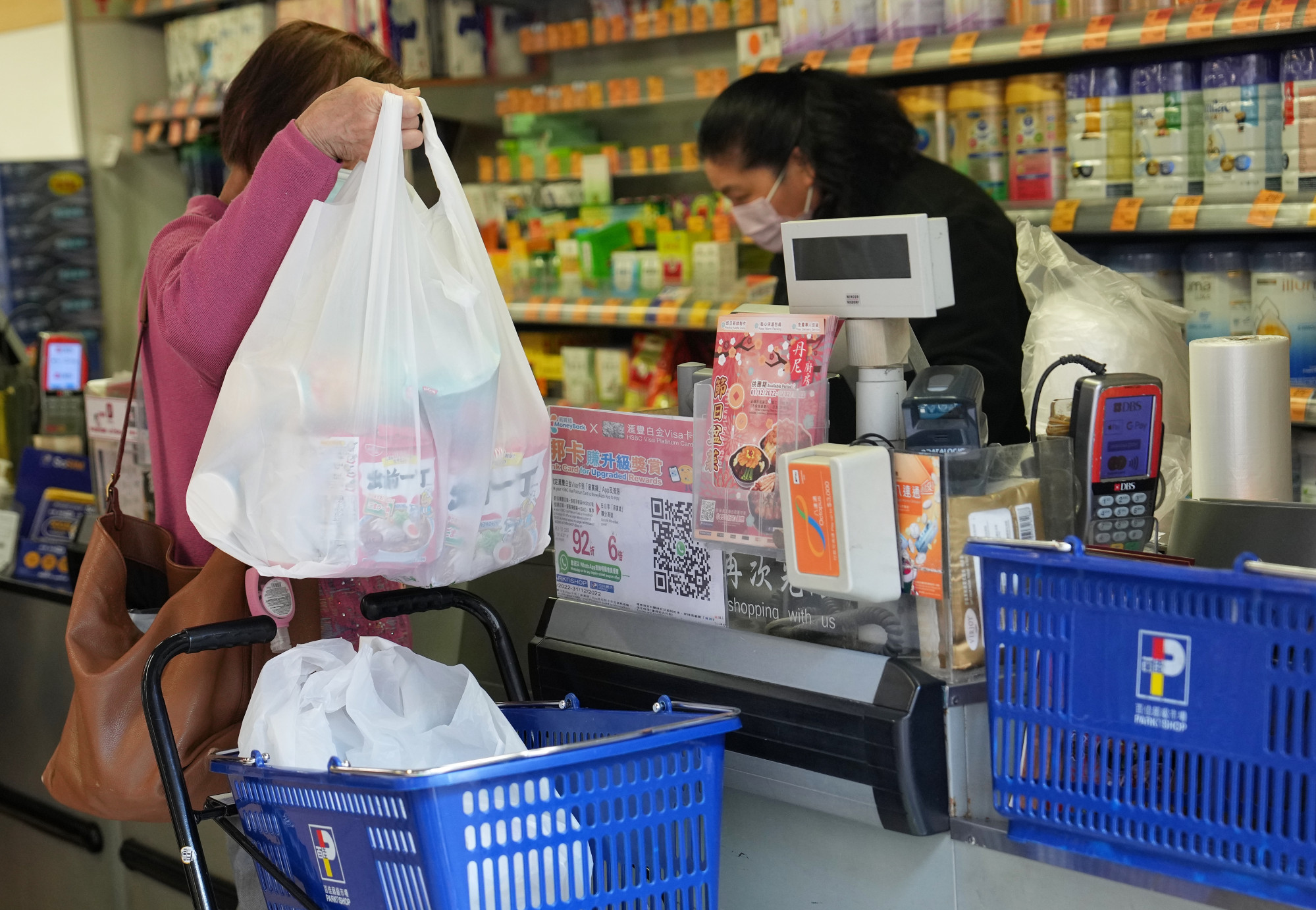
Explainer | Why Hong Kong’s war on plastic means you will need to pay HK$1 per bag at shops from December 31
- Consumers must pay increased levy even when shopping online, as city moves to reduce plastic waste
- Businesses have a month to comply fully with charging plastic bag levy, after which they face fines
From December 31, consumers in Hong Kong will have to pay HK$1 (13 US cents) for every plastic bag they use when they go shopping.
This follows the Legislative Council’s move in October to double the plastic bag levy, which remained at 50 HK cents for 13 years. Lawmakers also decided to scrap exemptions for certain goods.
Here is what shoppers need to know if they do not bring their own bags.
1. Which shops will charge HK$1 per plastic bag?
All shops, including mail-order and online retailers, will charge the levy.
More than 100,000 retail shops, large and small, doing every kind of business, will charge for plastic bags. They include bakeries, electrical appliances shops, department stores and supermarkets, as well as hair salons, laundries and beauty parlours.
All business owners have a month to comply fully. After that, offenders will face a HK$2,000 fine, with the penalty rising to a maximum of HK$200,000 for repeat violations.
2. Which items are no longer exempted?
Shoppers will no longer receive free bags for food and drinks in sealed packaging. This includes canned or bottled drinks and biscuits, frozen and chilled items such as refrigerated milk, and food in loose packaging, such as onions in mesh bags and meat in trays.
Also, fruits and vegetables wrapped entirely in materials such as cling film or tissue will not get a free bag.
Asked how the authorities could prevent shoppers from ripping off the wrapping to get a free bag, Bruno Luk Kar-kin, the deputy director of environmental protection, said they could not control consumer behaviour.
3. Which items will still be exempted?
For hygiene reasons, shoppers will still get free plastic bags for unpackaged food, such as vegetables and meat brought from wet markets or fruit covered in foam nets.
Takeaway food and drink are also exempted from the levy.
However, Luk urged shoppers to stick to the “one purchase, one bag” principle, unless multiple ones were needed to avoid ruining groceries. He also advised retailers to keep their plastic bags away from spots where customers could help themselves.
4. Why is there a charge for plastic bags?
Environmentalists have long campaigned against the use of plastic bags and utensils that end up in the world’s oceans, causing pollution and endangering marine life. A 2005 landfill survey in Hong Kong indicated that about eight billion plastic shopping bags were thrown away every year, meaning each person in the city used more than three bags a day.
In 2009, the Environmental Protection Department asked about 3,000 retail outlets to start charging 50 cents per bag. This was extended to all shops in 2015, following a three-month public consultation. There was an improvement, with official data showing that 3.93 billion plastic bags ended up in landfills in 2015. But the number rose to 4.18 billion bags in 2020.
Legco doubled the charge to HK$1 per bag in October, following a public consultation. Some green groups and lawmakers said this was not good enough and wanted the levy hiked to HK$2, but a motion by lawmaker Tony Tse Wai-chuen was rejected.
Operators will keep the fees collected, according to Luk, as the government does not have enough manpower to monitor and gather the money. Instead, he called on them to make good use of the money for environmental purposes.

5. What have other places in the region done?
Taiwan was one of the first to act against the widespread use of plastic bags. In 2002 it banned retailers such as department stores, convenience stores, supermarkets and warehouse bulk retailers from giving shoppers free bags.
Mainland China implemented a plastic bag levy nationwide in 2008, charging 20 fen (3 US cents) per bag.
South Korea banned supermarkets and shopping malls from giving out plastic bags in 2018.
Macau started charging 1 pataca (12 US cents) per plastic bag in 2019. It will stop importing disposable plastic tableware from January 1, although it will not ban its use.
Japan charges shoppers between 2 and 10 yen (1 to 7 US cents) according to the use and size of the bag.
6. What else is Hong Kong planning to do?
Hong Kong aims to ban single-use plastic tableware from as early as the last quarter of 2023. This means the city’s restaurants must find environmentally friendly alternatives.
The sale or free distribution of other plastic products, such as hotel toiletries, umbrella covers, plastic cotton buds and toothbrushes, will also be forbidden.
